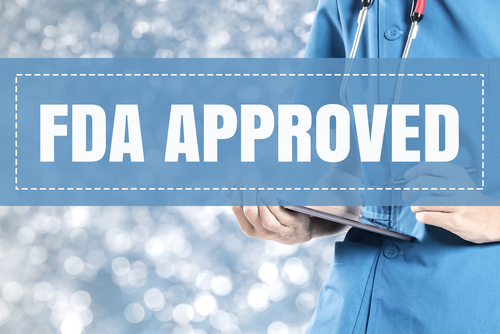HER2-positive breast cancer patients in the U.S. will have the possibility of being treated with a biosimilar to Herceptin (trastuzumab), following the approval of Ogivri (trastuzumab-dkst) as a more affordable treatment with similar efficacy to the original.
Ogivri (trastuzumab-dkst) became the first biosimilar to Herceptin approved by the U.S. Food and Drug Administration (FDA) on Dec. 1, and covers its use in all indications in the original treatment’s label, including HER2-overexpressing breast cancer and metastatic stomach cancer.
A biosimilar is a nearly identical but lower-priced version of the treatment on which it is based. Companies making a biosimilar – Mylan and Biocon, in the case of Ogivri – can do so when the patent to the original product expires. The companies secured global licenses for its product from Herceptin’s producer, Genentech, earlier this year.
“The FDA continues to grow the number of biosimilar approvals, helping to promote competition that can lower health care costs. This is especially important when it comes to diseases like cancer, that have a high cost burden for patients,” Scott Gottlieb, FDA commissioner, said in an agency press release. “We’re committed to taking new policy steps to advance our biosimilar pathway and promote more competition for biological drugs.”
“The approval of Ogivri represents a monumental achievement for Mylan to increase patient access to biosimilars and deliver significant savings to the U.S. healthcare system,” Heather Bresch, CEO of Mylan, said in another press release.
The FDA’s decision was based on data showing the structural and functional similarities between Ogivri and Herceptin, in addition to preclinical and clinical trial data showing similar safety and effectiveness.
But Ogivri also shares Herceptin’s side effects, which can include heart disease (cardiomyopathy), infusion reactions, and lung damage, and it may also harm a developing fetus.
Ogivri is already approved in 19 countries around the world, and Mylan and Biocon are currently working with regulatory authorities in Australia, Canada, and Europe for approval for the Herceptin biosimilar.
“We are extremely pleased with the acceptance of our [marketing authorization application in Europe],” Rajiv Malik, Mylan’s president, said in a press release. “We now look forward to moving ahead with the rest of the regulatory review process in Europe and to bringing these important treatment options to cancer patients.”

